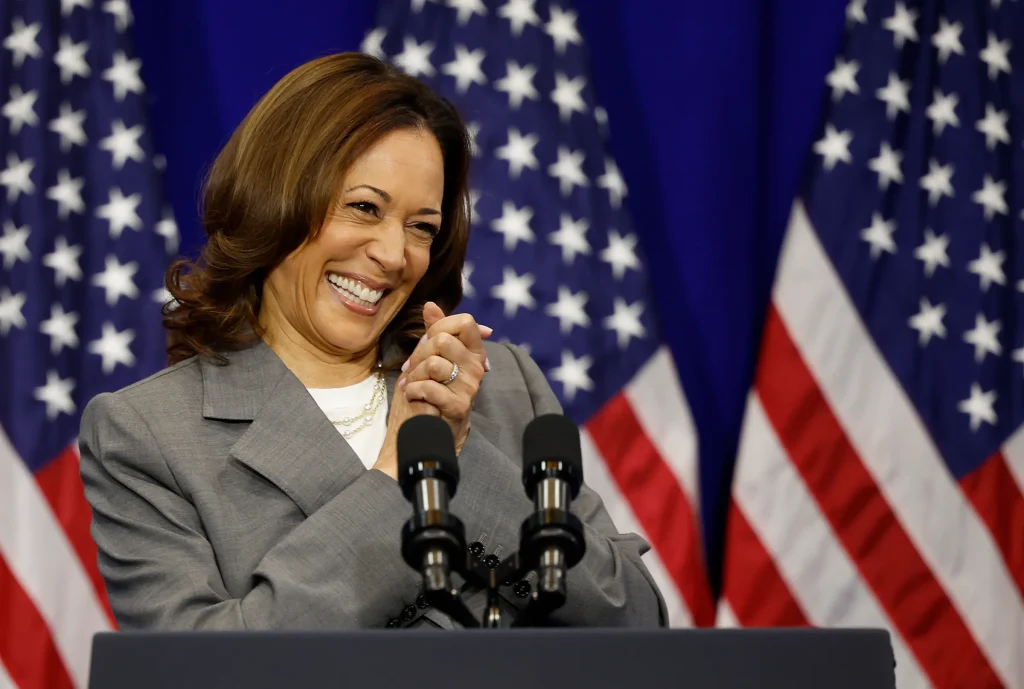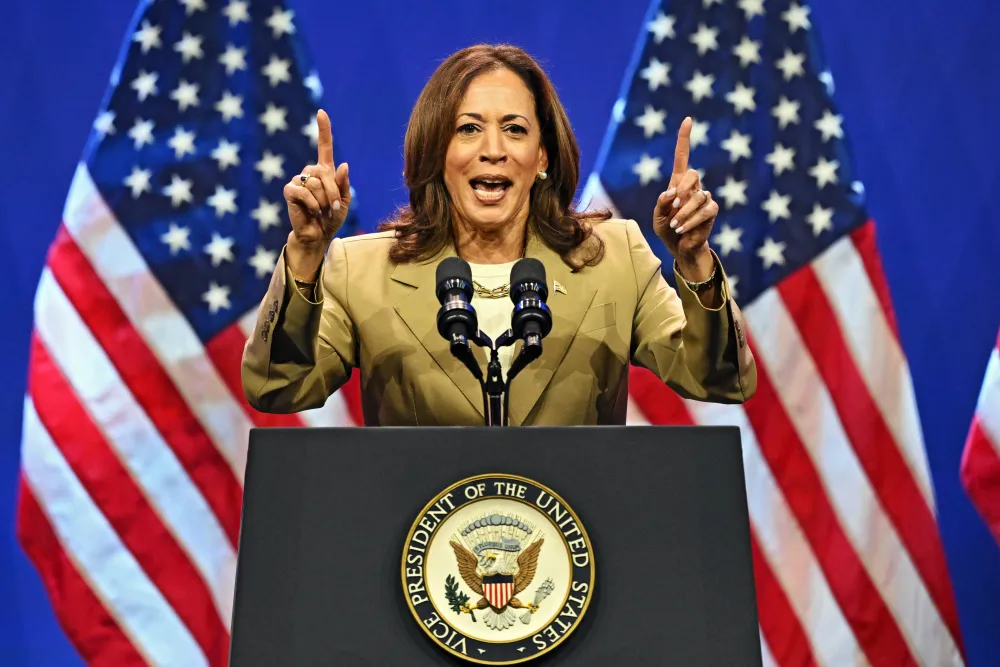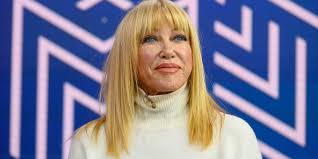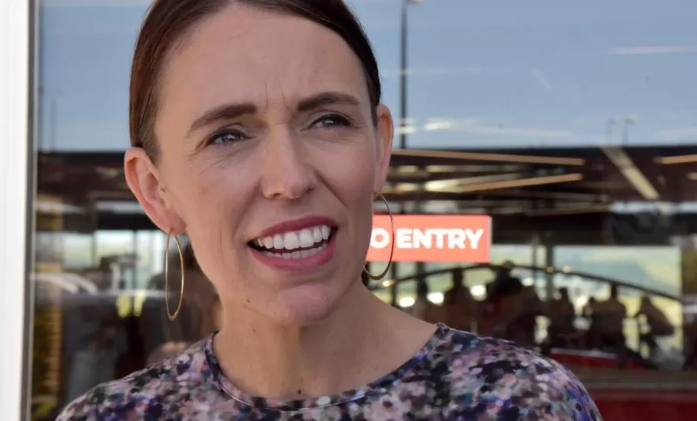Harris Could Make History as First Black Woman and First South Asian President.

WASHINGTON (AP) — Kamala Harris has already made history, and she might make even more if President Joe Biden steps down from his reelection bid and backs her.
Biden announced on Sunday that he’s withdrawing from the race after a poor debate performance raised concerns about his age and readiness for a second term.
As the first woman, Black person, and person of South Asian descent to serve as vice president, Harris could become the first woman president if she wins against Donald Trump in November.
Biden called his choice of Harris as running mate “the best decision I’ve made” and has endorsed her as his successor.
“Democrats — it’s time to unite and beat Trump,” Biden urged on X (formerly Twitter). “Let’s make it happen.”
Harris called Biden’s decision to step down a “selfless and patriotic act,” praising him for “putting the American people and our country first.”
“I’m honored to have the President’s endorsement, and I’m committed to earning this nomination,” Harris said. “In the past year, I’ve traveled the country, discussing the crucial choice in this historic election.”
Following Biden’s announcement, many prominent Democrats quickly rallied behind Harris. However, her nomination isn’t guaranteed yet, and there have been calls for a rapid “mini primary” to explore other candidates before the party’s convention in Chicago next month.
A recent AP-NORC Center for Public Affairs Research poll found that roughly 60% of Democrats think Harris would perform well as president. About 20% of Democrats disagree, and another 20% are unsure.
The poll also revealed that around 40% of U.S. adults have a positive view of Harris (pronounced “COMM-a-la”), while about 50% have an unfavorable opinion.
A former prosecutor and U.S. senator from California, Harris’s 2020 Democratic presidential campaign faltered before any primaries were held. She later became Biden’s running mate but faced challenges establishing herself as vice president. Tasked with addressing migration issues from Central America, she was often criticized by Republicans for illegal border crossings.
Despite these hurdles, Harris gained significant attention as the White House’s leading advocate for abortion rights following the Supreme Court’s overturning of Roe v. Wade in 2022. She has also been instrumental in engaging with young people and voters of color.
Additionally, Harris’s strong performance following Biden’s debate troubles has bolstered her position among Democrats in recent weeks.

Even before Biden’s endorsement, Harris was already considered the leading candidate to succeed him. With her experience in foreign policy and national name recognition, she has an advantage over potential challengers such as California Gov. Gavin Newsom, Michigan Gov. Gretchen Whitmer, and Pennsylvania Gov. Josh Shapiro.
Harris aims to avoid the fate of Hubert Humphrey, who, as vice president, secured the Democratic nomination in 1968 after President Lyndon Johnson decided not to seek reelection due to widespread discontent over the Vietnam War. Humphrey ultimately lost to Republican Richard Nixon.
Nixon resigned in 1974 during the Watergate scandal, and Vice President Gerald Ford succeeded him. Ford, however, never won a term of his own.
Harris was born on October 20, 1964, in Oakland, California, to parents who met through their work as civil rights activists. Her hometown and nearby Berkeley were central to the racial and social justice movements of the era, and Harris was both shaped by and benefited from these experiences.
She frequently shares stories about attending protests in a stroller and growing up surrounded by adults “who spent their time marching and advocating for justice.” In first grade, she was bused to school as part of the second wave of students integrating Berkeley’s public education system.
Harris’s parents divorced when she was young, and she was raised by her mother along with her younger sister, Maya. She attended Howard University, a historically Black institution in Washington, where she joined the Alpha Kappa Alpha sorority, which provided her with a strong sense of sisterhood and political support over the years.
After graduating, Harris went back to the San Francisco Bay Area for law school and decided to pursue a career as a prosecutor, a choice that surprised her activist family.
She believed that working for change within the system was as crucial as pushing for it from the outside. By 2003, Harris was running for her first political office, challenging the incumbent San Francisco district attorney.
With few city residents familiar with her name, Harris set up an ironing board outside grocery stores to introduce herself and connect with people. She won the election and quickly demonstrated her independent approach. Early in her tenure, she chose not to seek the death penalty for the killer of a young police officer, which strained her relationship with city law enforcement.
The incident did not hinder her political rise. By late 2007, while still serving as district attorney, she was canvassing in Iowa for then-presidential candidate Barack Obama. Once he became president, Obama endorsed her in her 2010 campaign for California attorney general.
Upon winning the statewide office, she vowed to enforce the death penalty despite her personal opposition to it. She also refused to defend Proposition 8, a voter-backed initiative banning same-sex marriage. Additionally, Harris played a crucial role in securing a $25 billion settlement with the nation’s mortgage lenders in the aftermath of the foreclosure crisis.
As incidents of police violence against young Black men gained more attention, Harris made some reforms, such as tracking racial data in police stops. However, she did not pursue more drastic measures like requiring independent investigations into police shootings.
Her record as a prosecutor would later become a point of contention when she ran for president in 2019, as some progressives and younger voters called for more immediate reforms. Despite this, she built a significant connection with Beau Biden, Joe Biden’s son and then Delaware’s attorney general. Beau Biden’s friendship with Harris became a key factor when his father selected her as his running mate, especially after Beau’s death from brain cancer in 2015.
Harris married entertainment lawyer Douglas Emhoff in 2014 and became a stepmother to his two children, Ella and Cole, who call her “Momala.”
In 2016, Harris seized a rare political opportunity when Sen. Barbara Boxer, who had served for over two decades, announced she would not seek reelection.
Once in office, Harris quickly emerged as a key figure in the Democratic resistance to Trump, earning recognition for her incisive questioning of his nominees. One notable moment was her questioning of now-Supreme Court Justice Brett Kavanaugh about whether he knew of any laws allowing the government to regulate a man’s body. His inability to answer that question resonated with women and abortion rights activists.
Just over two years after becoming a senator, Harris launched her campaign for the 2020 Democratic presidential nomination. However, her campaign was plagued by internal conflicts and struggled to gain momentum, leading her to drop out before the Iowa caucuses.
Eight months later, Biden chose Harris as his running mate. While introducing her to the nation, Biden reflected on the significance of her nomination for “little Black and brown girls who often feel overlooked and undervalued in their communities.”
“Today, perhaps, they’re seeing themselves in a new light, as potential presidents and vice presidents,” he said.



